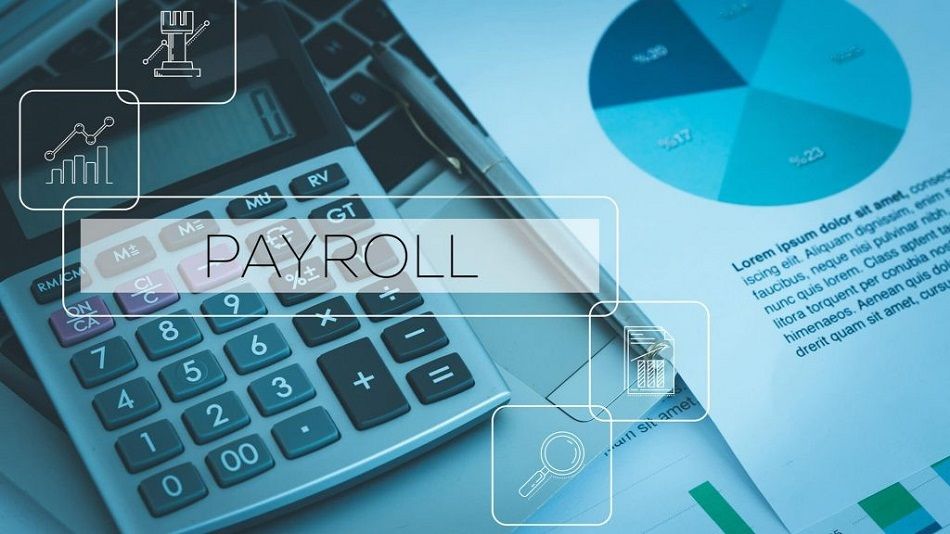What is Payroll tax compliance?
Payroll tax is a tax that employers withhold from their employees’ wages and pay to the government on behalf of the employees. What is Payroll tax compliance? Does the cost of social insurance for employees that a business pays include it in deductible expenses when determining taxable income for corporate income tax? Let’s find out in this article with S4B Vietnam!
1. Concept of Payroll tax compliance
Payroll tax is a tax that employers withhold from their employees’ wages and pay to the government on behalf of the employees. Payroll tax is calculated based on the employee’s wages or salaries.
In most countries, including the United States, the federal government and some state governments collect some form of payroll tax calculations. The three main groups of employee tax withholding from wages in the United States are Social Security, Medicare, and income taxes.
Payroll taxes that withholding tax for employees are likely to be itemized on the employee’s pay stub. The itemized list typically notes the amount withheld for federal, state, and municipal taxes, as well as for Medicare and Social Security payments.
Employee benefits tax reporting in Vietnam
2. Why are payroll taxes collected?
The government uses payroll tax revenues to fund specific programs such as Social Security, Medicare, unemployment compensation, and workers’ compensation. Local governments sometimes collect small payroll taxes to maintain and improve local infrastructure and programs, including first responders, road maintenance, parks, and reconstruction.
Typically, an employer is responsible for funding unemployment insurance. If eligible, a former employee can access these funds when he or she leaves the job. The unemployment insurance rate that an employer pays varies by industry, state, and federal fee. However, some states also require employees to contribute to unemployment and disability insurance.
Federal payroll taxes include Social Security and Medicare contributions, which form the Federal Social Security and Medicare Tax Act (FICA). The basic premise of Social Security and Medicare is that you pay into them while you work. Then, upon retirement or under certain medical conditions, you may be eligible to withdraw money from those fund and managing payroll tax deductions.
3. What is a payroll fund?
A payroll fund is the total amount of money that an agency, unit, or organization sets aside to pay wages to employees as required by law. This fund includes all wages that a business must pay to employees over a certain period of time, usually monthly or annually.
The components of a payroll fund include:
– Base salary: The official salary agreed upon in the employment contract.
– Salary allowances: Allowances such as responsibility allowances, toxic allowances, regional allowances, etc.
– Bonuses: Bonuses based on work performance, holiday bonuses, etc.
– Other additional payments: Including overtime pay, salary during vacation time, holidays, etc.
Company handles Payroll tax calculations outsourcing
4. Social security tax compliance for employees of the enterprise
Based on the provisions of Article 85 of the Law on Social Insurance 2014, Article 86 of the Law on Social Insurance 2014; Article 4 of Decree 58/2020/ND-CP; Article 5 of Decree 58/2020/ND-CP and Decision 595/QD-BHXH in 2017. Accordingly, based on the employee’s salary, the Social security tax compliance is 32%, in which the employee contributes 10.5% of the monthly salary for social insurance, the employer contributes 21.5% of the monthly salary fund for social insurance (except for non-professional workers in communes, wards and towns).
5. Is the employee’s social insurance contribution deductible when calculating personal income tax?
Based on Clause 1, Article 21 of the 2007 Law on Personal Income Tax, amended by Clause 5, Article 1 of the 2012 Law on Personal Income Tax, the following provisions are made on taxable income:
Taxable income
1. Taxable income from business, salary and wages is the total taxable income specified in Articles 10 and 11 of this Law, minus contributions to social insurance, health insurance, unemployment insurance, professional liability insurance for certain industries and occupations that must participate in compulsory insurance, voluntary pension funds, and deductions specified in Articles 19 and 20 of this Law.
The Government shall prescribe the maximum deduction for voluntary pension fund contributions specified in this clause. Thus, the social insurance premium paid by employees is included in deductible expenses when calculating personal income tax.
6. Is the social insurance premium paid by employees deductible when calculating corporate income tax?
According to Article 6 of Circular 78/2014/TT-BTC, amended by Article 4 of Circular 96/2015/TT-BTC, the provisions on deductible and non-deductible expenses when determining taxable income are as follows:
Deductible and non-deductible expenses when determining taxable income
1. Except for the non-deductible expenses specified in Clause 2 of this Article, enterprises are allowed to deduct all expenses if they meet the following conditions:
- a) Actual expenses arising in relation to the production and business activities of the enterprise.
- b) Expenses with sufficient legal invoices and documents as prescribed by law.
- c) Expenses if there is an invoice for each purchase of goods or services with a value of VND 20 million or more (prices including VAT) when paying must have a non-cash payment document. …
Accordingly, the social insurance payment for employees will be deducted with employee benefits tax reporting when calculating corporate income tax when meeting the provisions of Article 4 of Circular 96/2015/TT-BTC, it will be included in deductible expenses, specifically:
- Actual expenses arising in relation to the production and business activities of the enterprise.
- Expenses with sufficient legal invoices and documents according to the provisions of law.
However, the excess expenses will not be included in deductible expenses when determining taxable income according to the provisions of law for the above expenses.
We hope the article above about Tax reporting for payroll is helpful to our beloved readers! If your company is looking to ensure that employment contracts meet Vietnam’s labor law requirements and best Payroll tax filing deadlines, S4B Vietnam is here to help. Our expert team offers end-to-end HR solutions, including contract drafting, legal compliance, payroll tax audits, and employee management. Contact S4B Vietnam today for professional support tailored to employee benefits tax reporting.
>>>Read more: Comprehensive support in tax accounting services in Vietnam
S4B Vietnam
- Address: Unit 701B – 701C, Tower A, Handi Resco 521 Kim Ma Street, Ba Dinh District, Hanoi, Vietnam.
- Tel: + 84 24 3974 4181
- Email: service@s4b.com.vn
——————————————–
We Will Show You The Way To Success!


